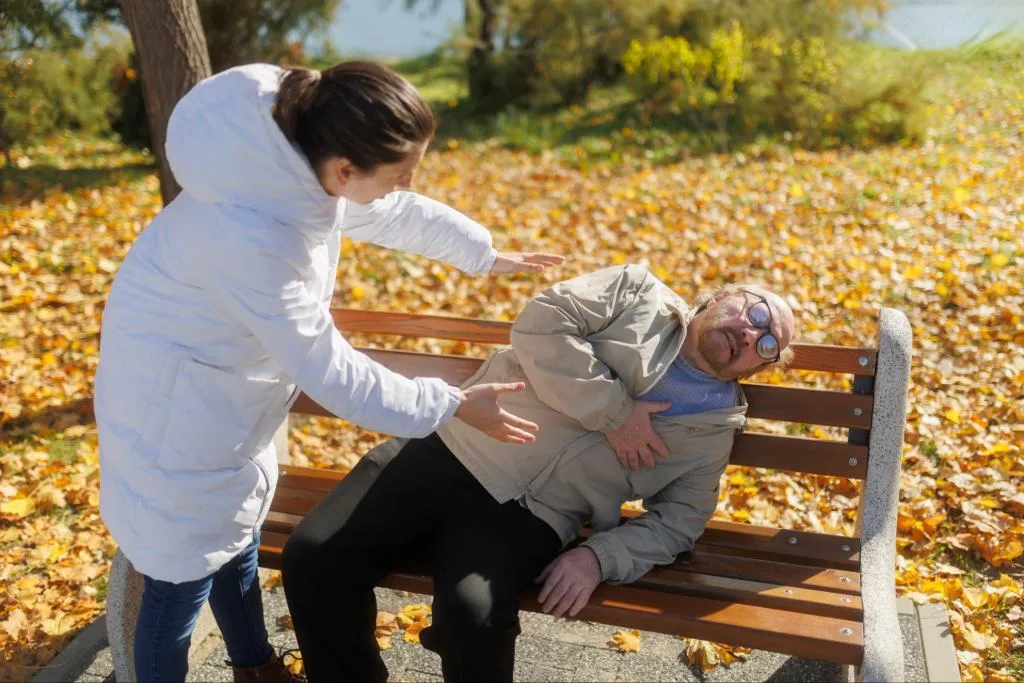Trauma, whether physical or emotional, can have a significant impact on your body. One of the ways trauma manifests is through high blood pressure, a condition where the force of blood against your artery walls becomes elevated. This response is often tied to the body’s reaction to stress or injury.
What Happens to Your Body After Trauma?
Trauma activates your body’s natural stress response, often called the fight-or-flight response. This is a survival mechanism designed to help you react to danger. When triggered, your body releases stress hormones like cortisol and adrenaline. These hormones cause your heart to beat faster and your blood vessels to narrow, which raises your blood pressure.
For example, if you experience a car accident, your body immediately enters this heightened state to protect itself. While this response is helpful in emergencies, prolonged activation can strain your cardiovascular system. If the stress response doesn’t subside, elevated blood pressure may persist, leading to further complications.
Why Trauma Can Cause Long-Term High Blood Pressure
Prolonged stress following trauma can lead to chronic high blood pressure, or hypertension. Emotional distress, lingering pain, and sleep disturbances often contribute to this condition. These factors place ongoing pressure on your heart and blood vessels.
For instance, someone dealing with anxiety after an accident may find their blood pressure remains high due to consistent stress. Similarly, chronic pain can keep the nervous system in a heightened state, preventing the body from fully relaxing. Without proper management, these conditions may lead to long-term health challenges.
Signs and Symptoms of High Blood Pressure After Trauma

High blood pressure after trauma can show up in several ways. Here are common signs to watch for:
- Headaches: Often persistent or severe, they may feel like a tight band around the head.
- Dizziness: Feeling lightheaded or unsteady is a frequent symptom.
- Fatigue: Chronic tiredness occurs when the heart is overworked.
- Chest Pain: Discomfort or tightness in the chest can signal increased strain on the heart.
- Blurred Vision: High blood pressure can damage small blood vessels in the eyes, affecting vision.
- Shortness of Breath: Difficulty breathing may indicate stress on the cardiovascular system.
These symptoms shouldn’t be ignored, especially after trauma. Left untreated, high blood pressure increases the risk of heart disease, stroke, and other complications.
Common Triggers of High Blood Pressure After Trauma
High blood pressure after trauma can stem from a variety of triggers. Both physical and emotional trauma can play a role, and understanding these causes is a step toward proper care.
- Car Accidents: Physical injuries and the stress of the incident can activate your body’s fight-or-flight response. Pain and inflammation from injuries may also contribute to elevated blood pressure.
- Emotional Shock: Events like losing a loved one or receiving devastating news can place your body under significant stress, leading to an increase in blood pressure.
- Severe Injuries: Fractures, burns, or other major injuries can cause pain and inflammation, which may keep your stress response activated for a prolonged period.
- Post-Traumatic Stress Disorder (PTSD): Ongoing emotional distress and anxiety related to a traumatic event can result in consistently high blood pressure levels.
Both physical and emotional trauma impact the body in similar ways, keeping stress hormones elevated. This continuous activation can prevent the body from returning to a normal state, making it vital to address both the physical and emotional aspects of trauma.
Effective Ways to Manage High Blood Pressure After Trauma
Managing high blood pressure after trauma requires a comprehensive approach that addresses both the physical and emotional effects of the condition.
- Stress Management: Techniques like mindfulness, deep breathing exercises, or yoga can help calm your nervous system and reduce blood pressure levels.
- Healthy Diet: Incorporating nutrient-rich foods like fruits, vegetables, whole grains, and lean proteins can support heart health and regulate blood pressure.
- Regular Physical Activity: Engaging in gentle exercises like walking or swimming can improve cardiovascular function and help manage stress.
- Medical Care: Regular monitoring of blood pressure and medications prescribed by your healthcare provider can effectively control the condition.
- Chiropractic Care: Adjustments and pain management therapies can help reduce physical stress, promote relaxation, and support overall health.
Combining these strategies creates a path toward better health, helping you recover from trauma while preventing long-term complications associated with high blood pressure.
How Chiropractic Care Manages High Blood Pressure After Trauma
Chiropractic care addresses high blood pressure after trauma by focusing on reducing stress and improving body alignment. When the spine is misaligned, it can disrupt the nervous system, keeping your body in a constant state of tension. Chiropractic adjustments gently realign the spine, helping to calm the nervous system and support healthy blood pressure levels.
In addition to adjustments, chiropractic care often includes complementary therapies like massage and therapeutic exercises. These treatments not only alleviate physical pain but also help your body relax, improving overall wellness. Together, these approaches promote recovery and help manage the effects of trauma on blood pressure.
How Affordable Chiropractic Killeen Can Help with Trauma Recovery
High blood pressure after trauma can be overwhelming, but you don’t have to face it alone. At Affordable Chiropractic Killeen, we provide care tailored to your recovery needs. From spinal adjustments to therapeutic exercises, our services are designed to ease pain, promote healing, and support your overall well-being.
If you’re ready to take steps toward feeling better, schedule an appointment or learn more about how we can help. Our team is here to guide you on your path to recovery with care and compassion.

